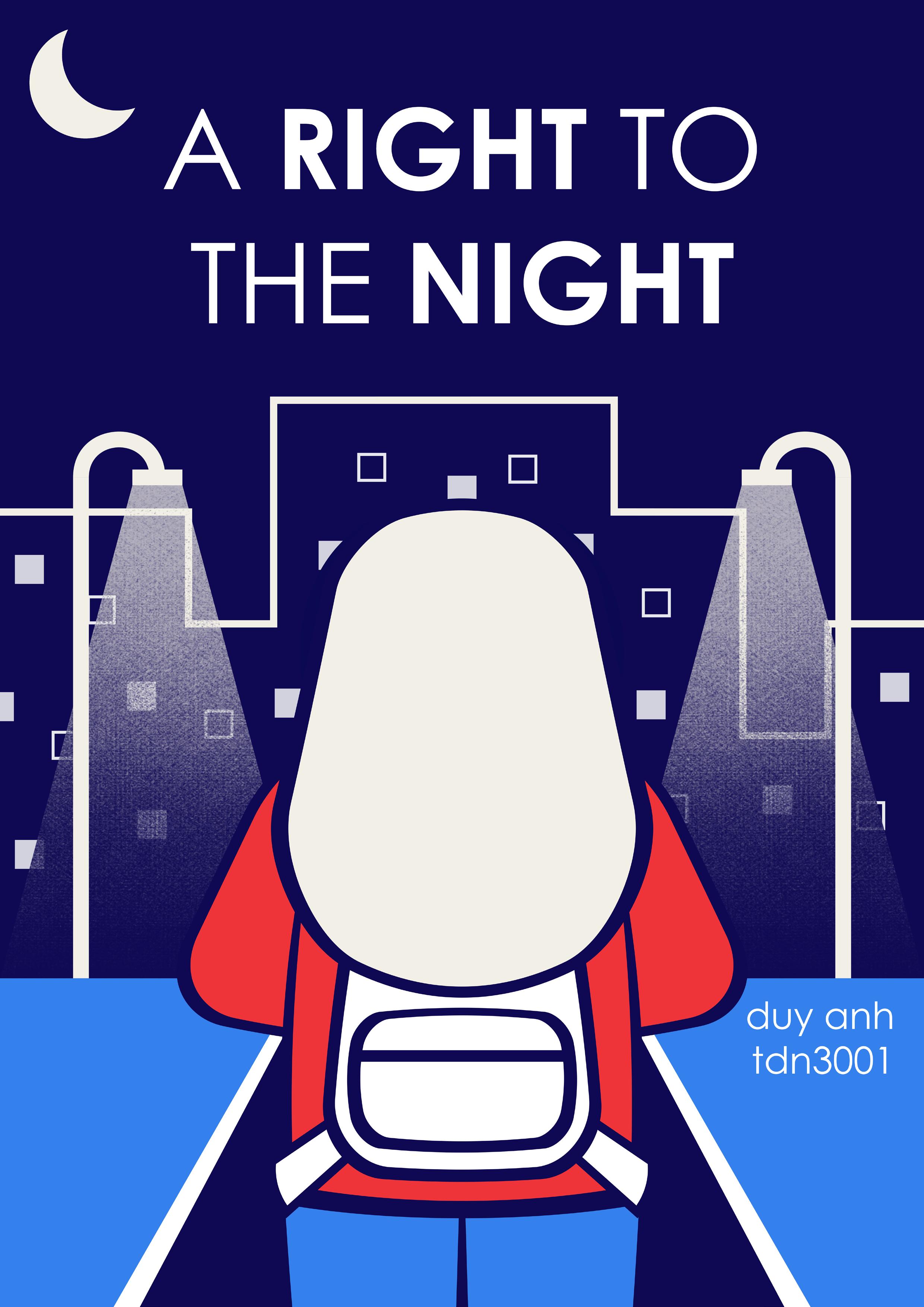

It’s always terrifying to be a woman when everytime a story comes up in the news reporting another woman has disappeared. As a woman walking alone at night with one eye at the back and one at the front, feeling paranoid of someone might be assaulting you from behind or out of no where.


Sexual harassment and other forms of sexual violence in public spaces, both in urban and rural settings, are an everyday occurrence for women and girls in every country around the world. It curtails women’s and girls’ freedom of movement and hinders their ability to access opportunities in education, work, and enjoyment in public life.


The “right to freedom” is often compromised for women with the restrictions set for them. All girls have equal rights to feel safe in urban city. However, should something go wrong, the blame always comes back against them, making them questions their dignity, character, behavior, appearance, decisions, for being subjected to sexual violence.


We live in a society that teaches the woman not to be raped instead of teaching the men not to rape. We also lives in a culture that glorifies male violence while over-sexualizing the female body trivialize sexual harassment. These kinds of normalized attitudes are often pervaded and perpetuated over and over that allows room for more victim blaming as a way to make excuses off from the perpetrator, which contributes further to an increase in gender discrimination, sexual violence, harassment, insecurity, exploitation.

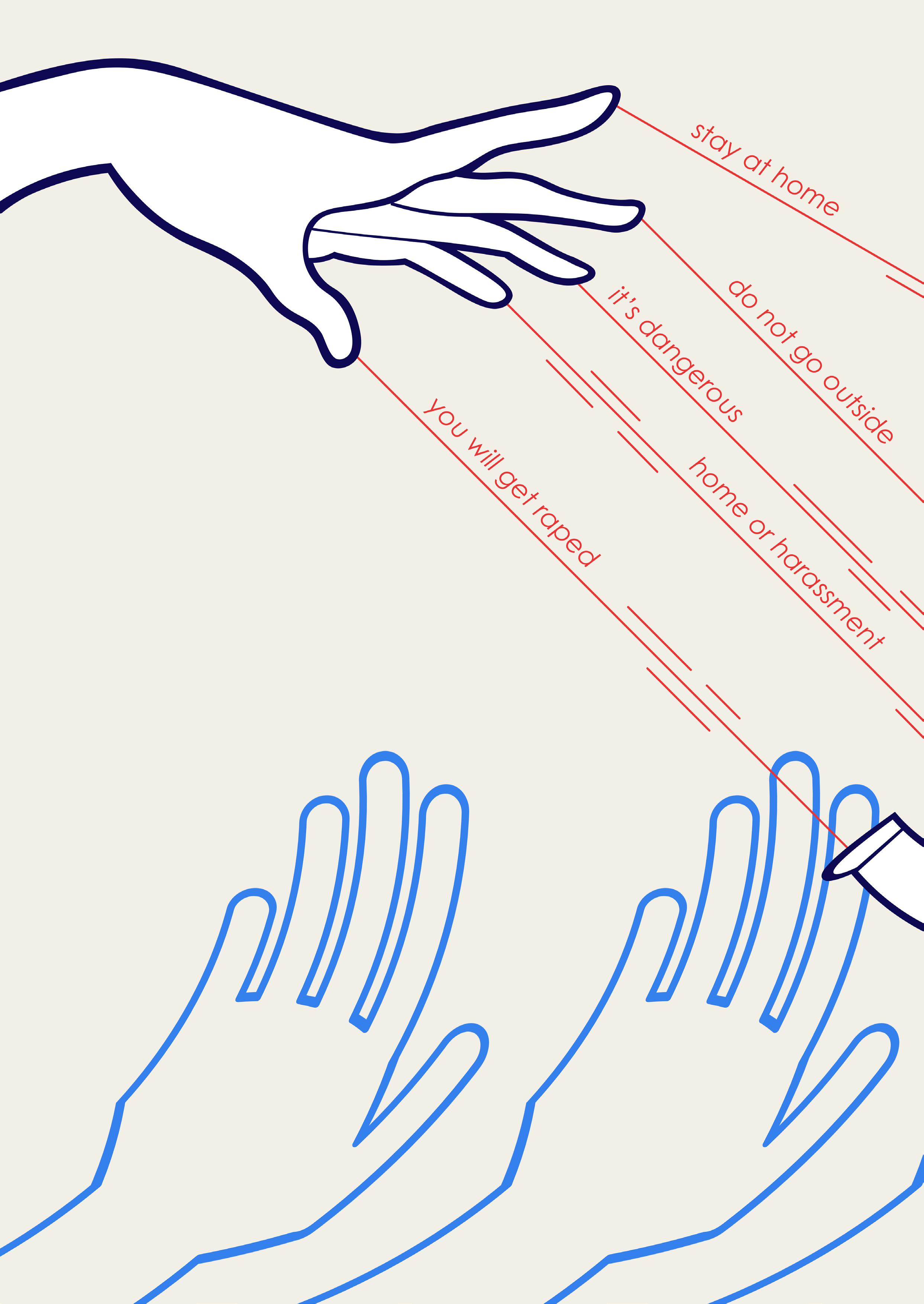
This stems from cultural norms and traditions that promote privilege, protection, impunity to the rapists. It shamefully accuses the victims, demand and manipulate them to make irrational sacrifices of their freedom and opportunities in order to stay safe. This weights on them a burden and presssure of safety on their shoulders, and blame them whenever it is out of their control.
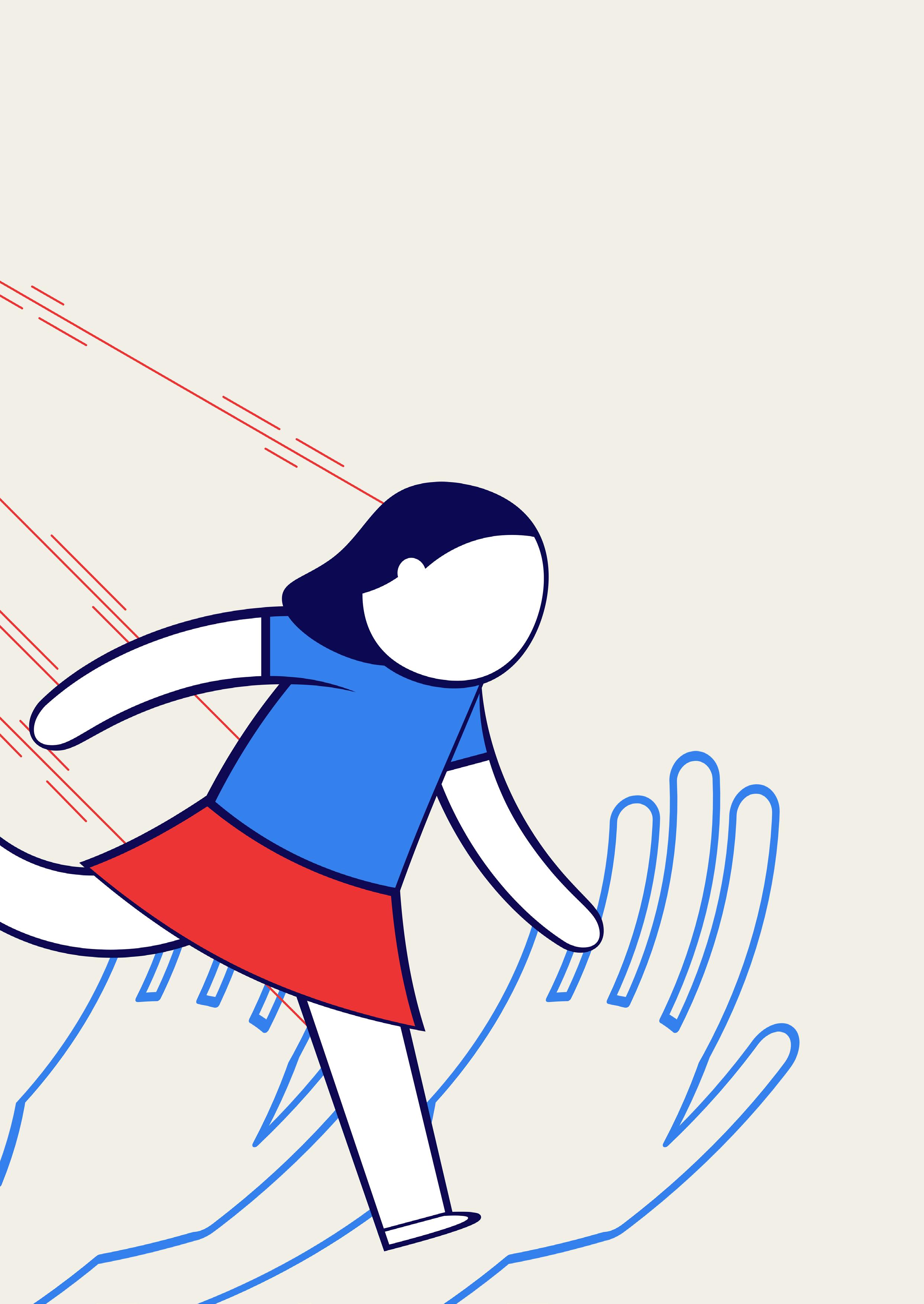
Women and girls often internalise their belief of public spaces as being unsafe because of their fear of harassment and violence by the rapists that will never be justified and taken seriously. This eventually makes an impact on their choices of not entering certain spaces in order to take responsibility for their own safety in public urban space. Whener they have to, they often employ themselves sets of safety strategies such as obliging dress code or time curfew.

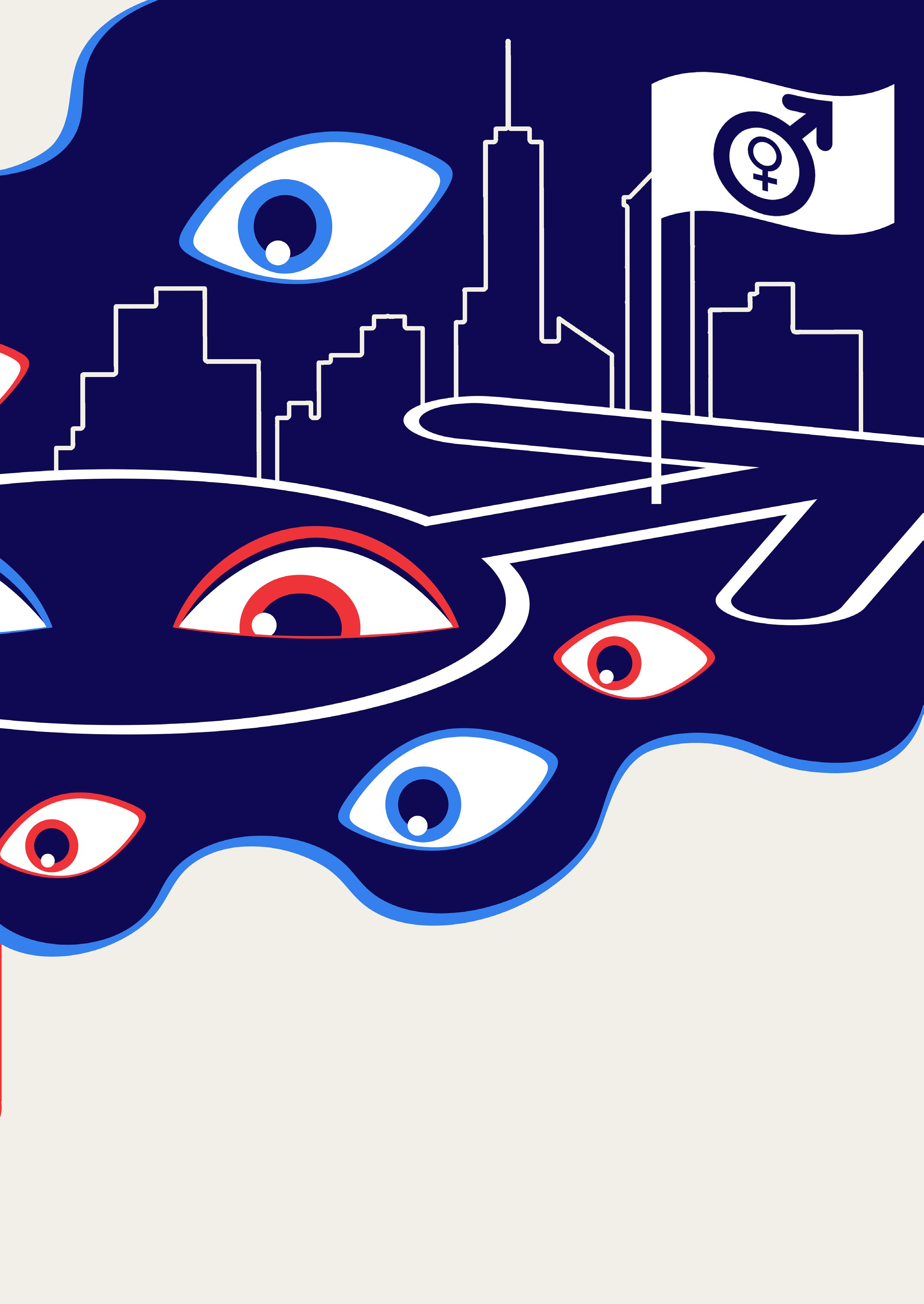

As a woman in a public space, they are often immediately consented as some objects of consumption for male sexual desire. The very fact that there are more men than women in the average public space makes them an object of interest whenever they step out. Their bodies, their clothes, their manner, are automatically dissected and consented as being appropriate or inappropriate.


Women have as much right to be wearing the clothes they want and occupying the spaces they are, as men do. Criminalising them for daring to go partying at night, or jogging on that lonely road, only adds to the perpetuation that men will keep sexually predating again and again no matter with what kinds of attire women are wearing.


We need to stop telling women not to walk home alone at night. It’s condescending and it makes them feel as though it’s their faults if something happens to them. The reality is that it’s men who need to change their behaviour. If I don’t want to be sexually assaulted or harmed outside, then it shouldn’t be on me to stay indoors.


People have no right to frighten any woman into changing her social behaviour and force her to think twice before she leaves the house or not. Just because I am a woman, it doesn’t mean I’m not suppose to be in a public space at certain times throughout the day. I shouldn’t be placed under house arrest because the police aren’t making an effort to take a step back and realise it’s men who need to be taught better social attitudes towards women.
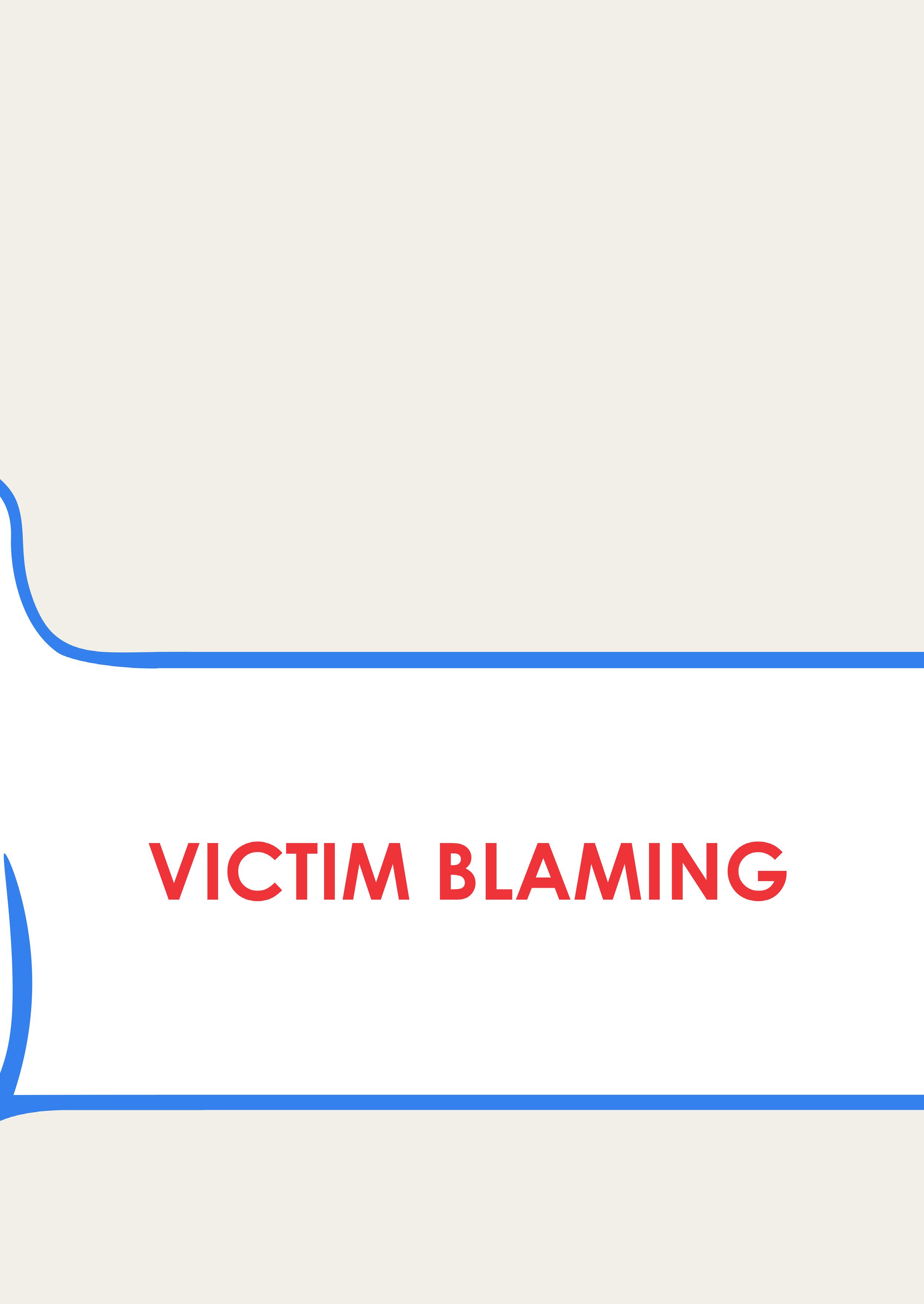

Being assaulted as a woman is neither something that is naturally meant to happen in our lives, nor it is their duty to go out of their way and avoid it. In stead of pointing blame against the women, lets start tackling the norms attitudes belief systems structures that prevent girls from acheving equality. It’s time to call out those sexist and misogynistic behaviour and to challenge the condonable acceptance that groping and cat-calling are not just simply normal or banter fun jokes if we truly want to achieve gender equality. So while the police tell the women to lock themselves inside and not go out alone, what are men being told to do? Are they being told to stop attacking the women?

One great example to demonstrate this ideology is a social movement called ANC. The movement was first initiated and came to light as when Varnika Kundu, a 29-year-old woman posted on her Facebook sharing her horrying experience when she was being chased and harassed by two male strangers while driving her way home after midnight. Regardless of after everything she faced, deflections of criticism and allegations were quickly pointed against her, saying that it was Kundu’s responsibility to ensure that she should be returning home in time. Meanwhile, there was no debate as to why the two men were out and stalking a girl at night.

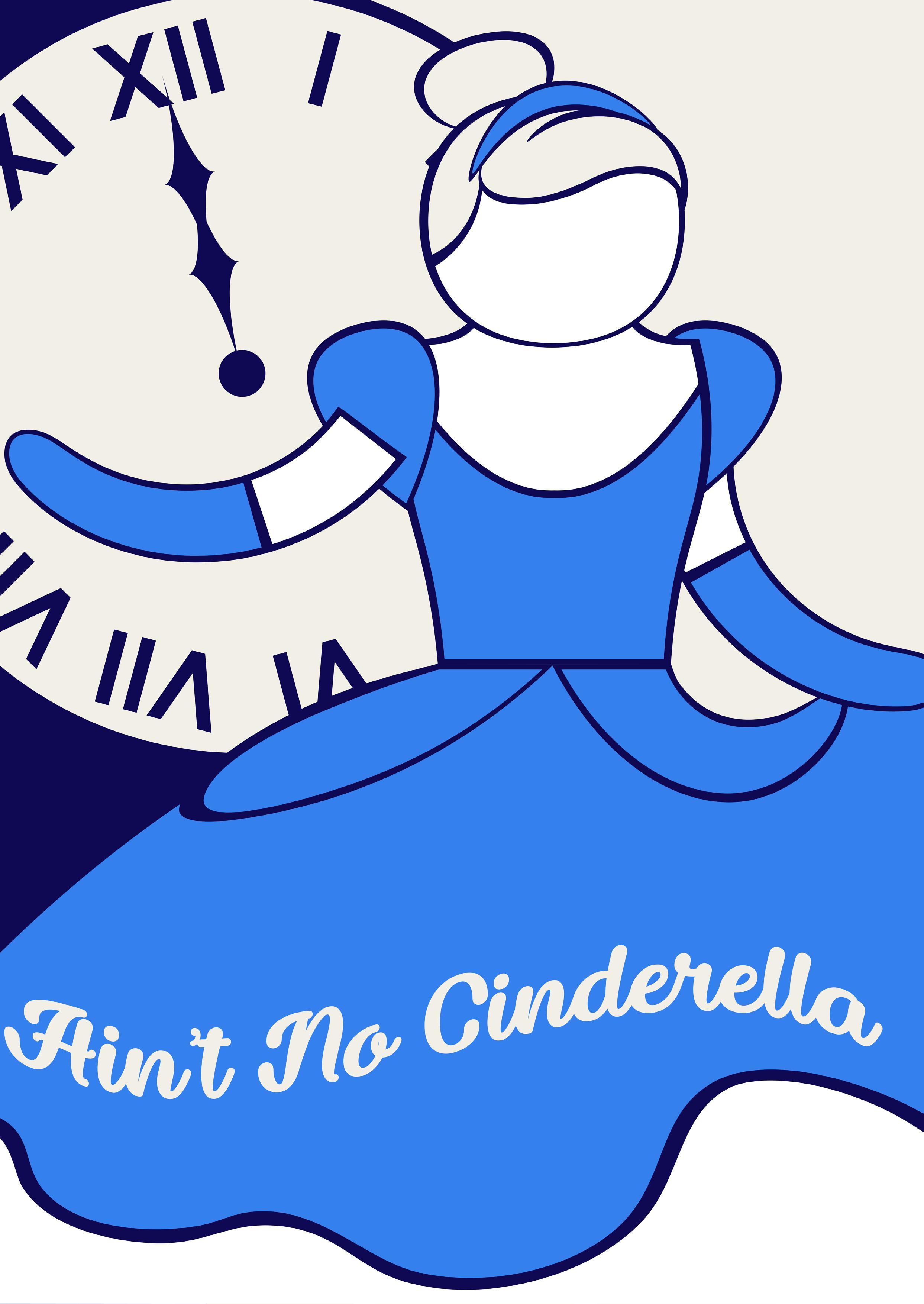
To fight the constant judgement that women have to face, they took to social media to share pictures clicked at night while they were out. Posted with the hashtag #AintNoCinderella, the photos went viral and a lot of people reacted strongly to them. The hashtag drew inspiration from a classic disney fairytale in which Cinderella had to return home before midnight, as a metaphor saying that the women should not be forced to come home at certain time just because its not safe out there.
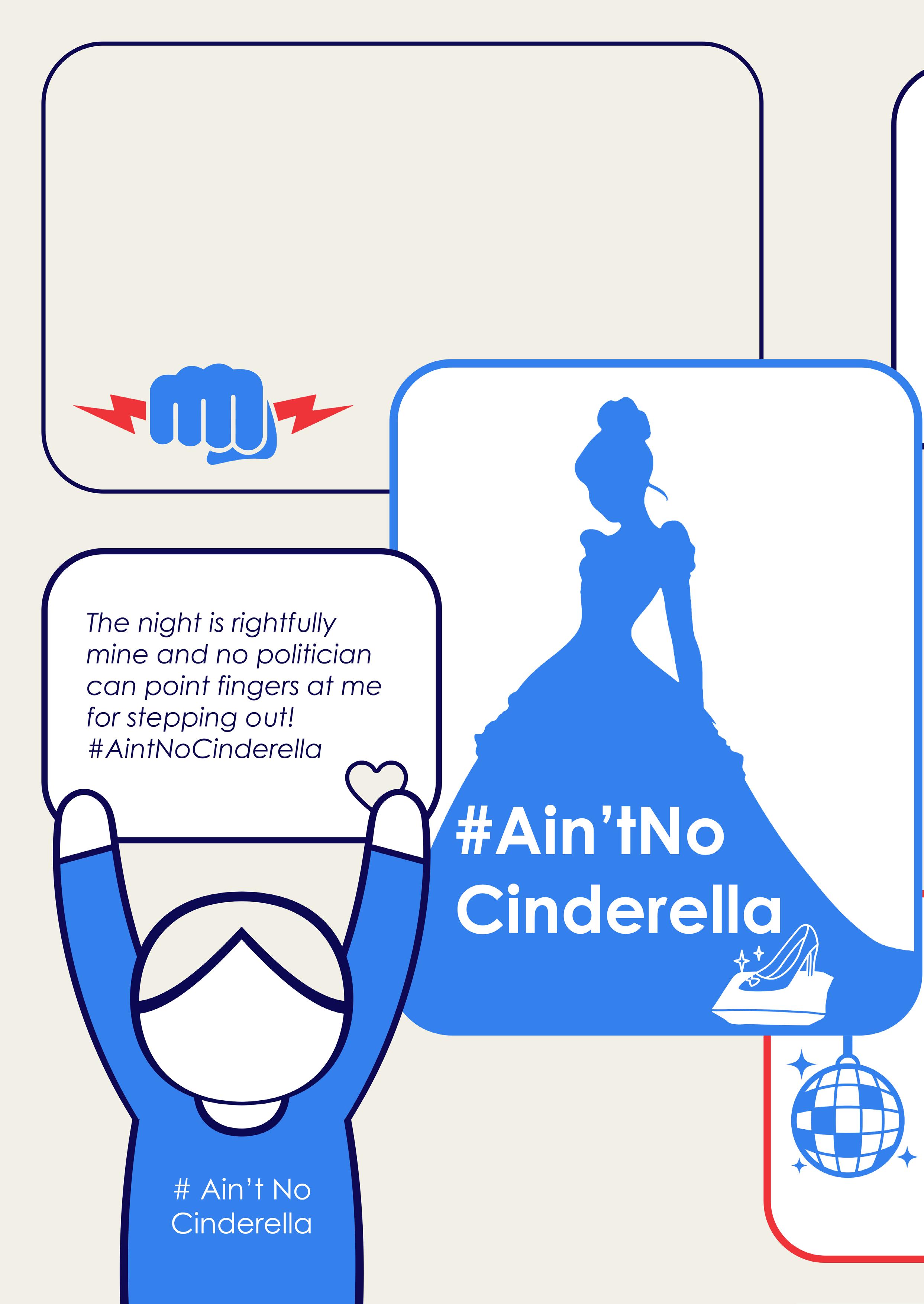
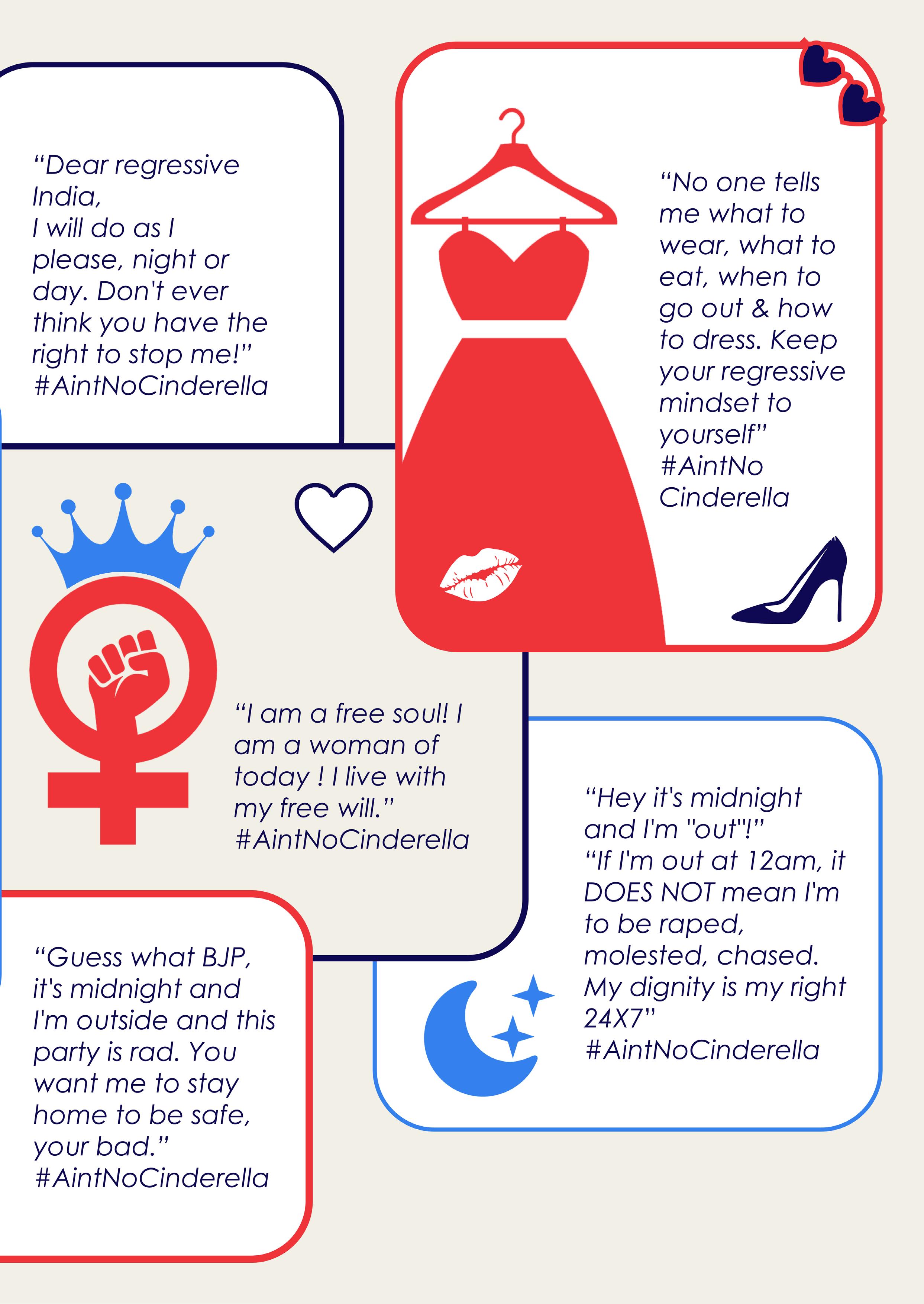

Similarly building upon the narrative argument of the reading A Right To The Night, Ain’t No Cinderella activism aims to expose an underlying problem of victim-shaming and rape culture. It shines a light on women being underrated as second class, and that women are being valued less than just mere objects of legs and shoulders, not worthy of earning respect or right to voice their opinions.


An ideal public space is a place for the public, and that public means men and women are equal. It is where women are allowed to voice their opinions just as same as the men. It is not a contested territory, affording more rights and bias to one gender over another. It should not be a place where only men can walk with authority, without worrying about constantly being watched and examined. As a women, when I walk in a city, I want to walk with the knowledge that it is my own and that I can access any space however and whenever I want. At the end of the day, I demand the right to walk freely. I demand equal rules for all.

